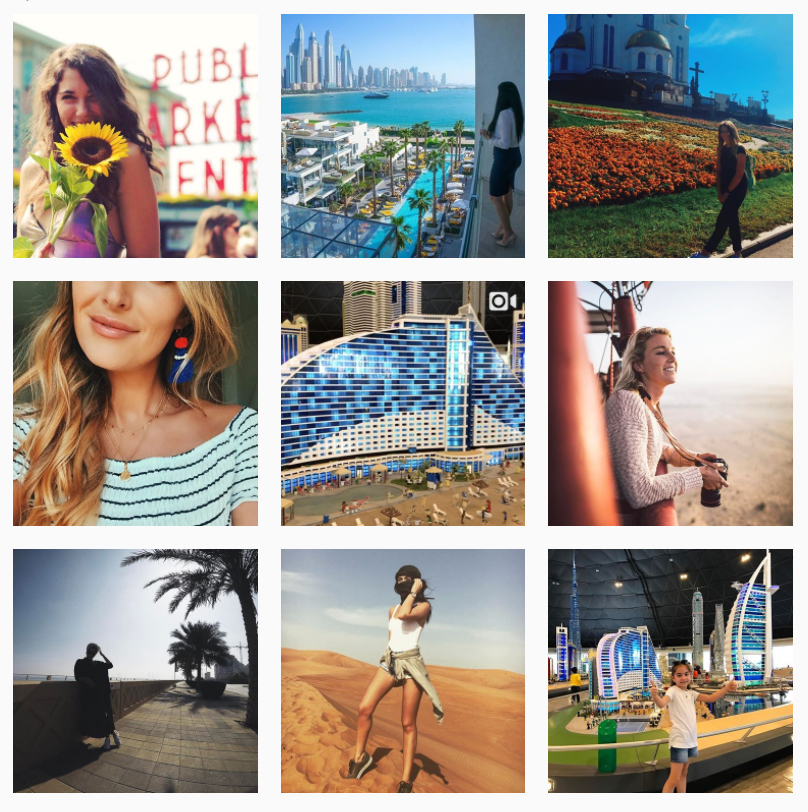Brands are increasingly looking to use influencers, such as Instagram stars and bloggers, in their marketing but the chasm between what brands and their PR companies expect to pay for and what influencers feel they should be paid is growing.
Brands are increasing looking to bloggers and other influencers to help with their marketing.

Linqia’s State of Influencer Marketing 2017 report of 170 marketers in a range of sectors including travel, found that 86% were using influencer marketing in their strategies. The main reason for including influencers in their campaigns was to create authentic content, with engagement and web traffic coming significantly behind this.
Almost half expected their spend on influencers to increase in 2017, suggesting that influencer marketing works.
Instagram is the joint number one channel for influencer marketing.
Linqia’s report says that 87% of marketers are using Instagram in their influencer campaigns and the same proportion are using Facebook. Blogs are the next most used platform, at 44%. Market research company eMarketer estimates that brands spent $570 million globally on influencer marketing on Instagram alone.
Another report this week says that despite the rise in influencer marketing, bloggers are not feeling the love.
The UK Blogger Survey 2017 shows that more bloggers (71%) now say that PRs expect them to support their clients’ brands for little in return, compared to 2016 (68%). At the same time, more bloggers (58%) now believe they should be paid for all coverage they give to brands – up from 50% last year.
PRs are clearly targeting bloggers. More than a third of bloggers said they were pitched more than seven times a week on average by PR companies. However, despite PR companies’ interest in bloggers, this did not typically result in coverage – 70% stated that only one pitch a week or less resulted in any content on their blog. Vuelio suggests that “reaching the influencer market is a key target for PRs [but] bloggers, no matter how successful, remain focused on their own opinion and the needs of their audience”.
The survey was sent to all bloggers on the company’s directory and the statistics are based on 586 usable responses. Some 18% of the respondents were travel bloggers (up from 15% last year). The survey shows a growing professionalism in blogging – 12% say their blog is now their main source of income, up from 8% last year while 18% predict that their blog will be their key income source in the future, up from 13% in 2016.
Yet there is hope, but it may require a change in how bloggers and other influencers perceive themselves.
Linqia asked marketers where influencer marketing sat within their company budgets. Some 42% now say that it sits within advertising/media compared with 31% who said the money comes from the PR/communications budget. Linqia says this “signals that the industry is evolving from an organic channel owned by communications to a paid channel owned by marketing”.
Others have also noted an increase in the number of brands using influencers as creative agencies, going directly to bloggers and Instagrammers in particular, to create and execute content that the advertisers then use themselves.
The answer for would-be influencers then is that rather than trying to become the latest incarnation of a travel journalist they should instead pitch themselves as paid creatives with the built-in authenticity that marketers crave.
At this year’s WTM London, a panel of experts will discuss whether influencer marketing is the way forward for destinations and will bring together DMOs, influencers and influencer agencies. The session takes place on the Global Stage on Tuesday 7 November from 14.05.




You open with “the chasm between what brands and their PR companies expect to pay for and what influencers feel they should be paid is growing” but I’m left wondering what evidence there is to support this. Is this claim based on research or just little more than an assumption?
Hi Paul. Thanks for your comment. This comes from the report mentioned in the article. I note that the link isnt working but you can find it here – http://www.vuelio.com/uk/wp-content/uploads/2017/09/UK-Bloggers-Survey-2017.pdf
In the unique niche at the intersection of travel and non-travel brands, I am currently undertaking some research that is less about looking at traditional travel blogs/influencers but rather those in crossover fields such as fashion. There is one trend that I’m observing in this space that, so far, is less evident in travel, namely that bloggers are not only becoming marketers, but increasingly, retailers. In fashion, for example, this has gone beyond “shop my look” and selling the brands that sponsor them to a growing number of bloggers actually bringing out their own lines of accessories or clothing. What I find amusing (and occasionally infuriating at the size of some of the egos out there) is the level of entitlement that many bloggers have rapidly acquired. Of course, not all influencers are equal. A lot of top bloggers have solid professional experience in the fields they write about. But equally many do not. They merely have opinions and laptops. One of the disconnects I’m seeing among influencers, potentially being fanned by brands and PRs paying them, is that they consider it completely normative/rational that they claim to be unswayed in their “independent” voice, yet expect to be paid for their personal opinions. Clearly they have NOT worked in an agency if they think this is how brands generally manage marcomms. And, more importantly, any brand/agency paying someone to express whatever s/he wants about a brand is sailing perilously close to due diligence risks in my opinion. Similarly, I find it even more strange that successful bloggers in the fashion space have thrown little tantrums when, surprise, surprise, brands that had previously been paying them for “influence” stopped doing so when they started selling their own designs to their readers. This direct competition (and frankly poor association: when someone who isn’t trained to write suddenly also starts designing clothing without any training and peddles it as credible fashion, what does it say about your brand?) in some cases has finally been a bridge too far. More scarily, in others it has not. Recent pieces of industry research by an association with top digital agencies as members has highlighted that there is still no clear, provable evidence that social media or influencer marketing is any more successful/offers better ROI than more traditional channels. So the other question all this raises for me is while marketers and PRs are rushing to focus on influencers as a replacement for traditional media, how is it that they even expect this segment to operate “professionally”? From where I’m sitting, I’m looking at the two different sides of the fence, the influencers and those paying them, both expecting to get a hell of a lot for relatively little.
Thanks for the information.